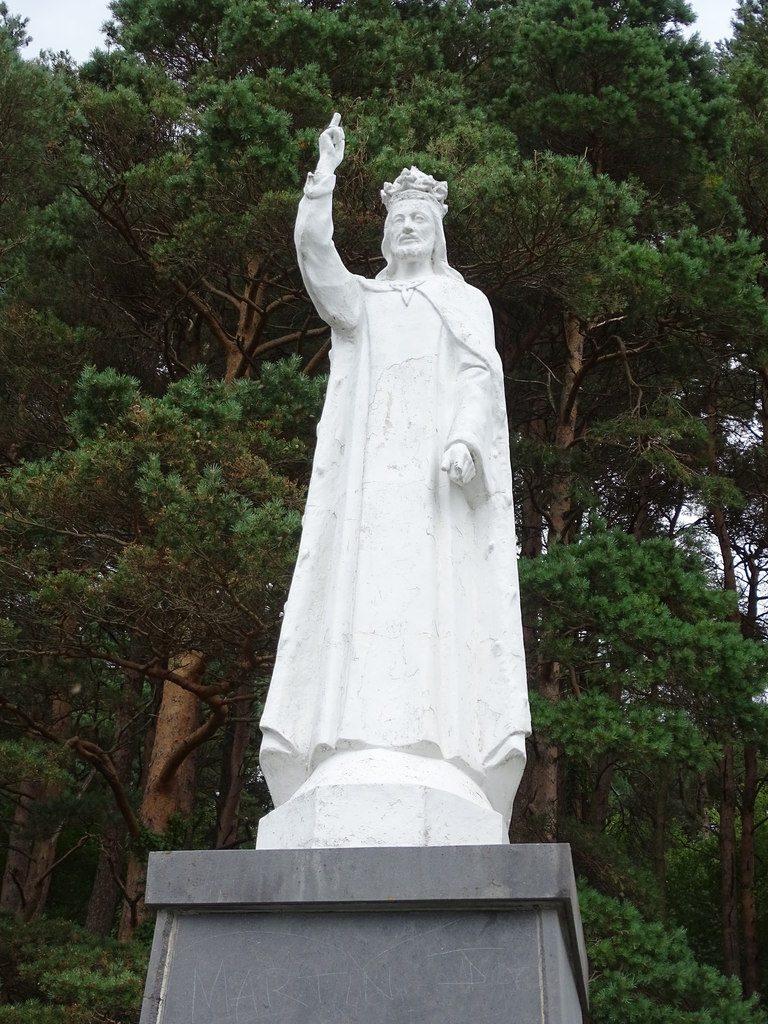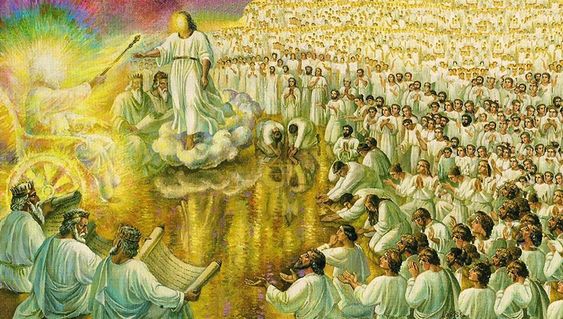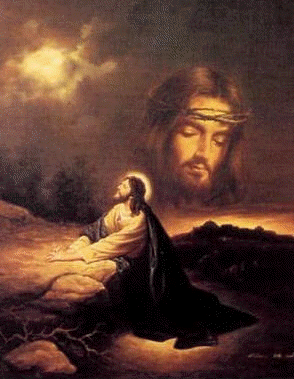Text of my sermon for Bramley St Peter, 21 November 2021
Jesus said,
‘With what can we compare the kingdom of God, or what parable will we use for
it? It is like a mustard seed, which, when sown upon the ground, is the
smallest of all the seeds on earth; yet when it is sown it grows up and becomes
the greatest of all shrubs, and puts forth large branches, so that the birds of
the air can make nests in its shade.’Mark 4:30-32 (New Revised Standard Version)
Pilate … summoned Jesus, and
asked him, ‘Are you the King of the Jews?’ Jesus answered, ‘Do you ask this on
your own, or did others tell you about me?’ Pilate replied, ‘I am not a Jew, am
I? Your own nation and the chief priests have handed you over to me. What have
you done?’ Jesus answered, ‘My kingdom is not from this world. If my kingdom
were from this world, my followers would be fighting to keep me from being
handed over to the Jews. But as it is, my kingdom is not from here.’ Pilate
asked him, ‘So you are a king?’ Jesus answered, ‘You say that I am a king. For
this I was born, and for this I came into the world, to testify to the truth.
Everyone who belongs to the truth listens to my voice.’John 18:33-37 (New Revised Standard Version)
We started this morning’s service with one of the shortest of the stories that Jesus told. No people feature in it, just – a mustard seed, something very small indeed. I don’t have mustard seeds here, but I do have apple seeds… Each one of these seeds, if you plant it and look after it properly, can become a tree itself. An apple tree can live for fifty years and produce over a hundred apples each year, each with about eight seeds in it. Just imagine how many trees you would end up with if they all got planted and grew into trees themselves!
Today, as you might have realised, is Christ the King Sunday,
and so we have the gospel reading in which Pontius Pilate, the Roman governor,
asks Jesus if he is a king. Jesus responds ‘you say that I am’ and explains
that his kingdom is not from this world. What he meant was, that what people
can expect from him is not what people expect from a king. But what do you
expect a King to do? [ideas…?]
We expect a king to be in charge of his country, don’t
we? But there are different ways of doing
that, different ways of leading. The
idea of Christ the King Sunday originated with the Pope in the 1930s. He wanted the Church to show a deliberate
reaction against the Italian government of the time. Where the earthly power was concentrated in
the hands of a dictator who could command a top-down approach to society and
impose restrictions on groups out of favour with the regime, he wanted Christians
to understand Christ as the sort of king who uses his power to enable others to
flourish, not to control them.
Before he met Pilate, Jesus had already explained to his
followers the sort of King that he was, or rather what sort of kingdom he
wanted to be in charge of. He often used
short stories like the short one about the mustard seed, or the longer one
about the farmer sowing seeds in different places. In just a few words, these stories gave a memorable
picture of tiny seeds growing into a tree or a useful crop.
Through these parables, we understand that the task of the
Church is to plant seeds of hope in people’s lives, which God can then grow
into fruitful activity. It’s a
bottom-up, ‘grass roots’ approach to transforming society, totally at odds with
the controlling tendency of many worldly governments. In the words of a hymn that we will sing
during communion, The world belongs to Jesus, but he turns the word upside-down. Not a top-down ruler, but a bottom-up
enabler.
Example 1 – A place to sit
What might that look like in practice? Here are two local stories. The first is very local. You will all know about the benches in Bramley shopping centre. Everyone who used them was angry when the management used their control to take them away. What did they do? It started with a few people bringing their own seats to sit on. The idea spread, a Facebook page was set up. and now dozens of people gather every Saturday. Local councillors are involved, and St Peter’s school. Over a thousand of us signed a petition, and our own Jo Herbert spoke to the Council. The Council have now told the managers of the centre that they shouldn’t have taken the benches away, and it’s even been on BBC news. The seed of an idea of a sit-in has grown into a tree-sized, peaceful protest. Let’s carry on praying that the benches will be put back. But in addition, it has grown links in the community that will strengthen us to do other things.
Example 12– The Eden Team
Here’s another story that appeared on the diocesan website this week, from a parish in Bradford, only six miles from Bramley. West Bowling is one of the most deprived estates in England, with 25% of children living in poverty. St Stephen’s Church have had an Eden Team working alongside them since 2019. The Eden Team is a few people living among those people in poverty, seeking to bring hope, through youth work, community projects, evangelism and discipleship.
Their leader Luke Owen said, “There is a lot of need in the
area and we want to come alongside people and meet those needs but most of all
we want to see people know the love of Jesus and have a personal relationship
with God. There are areas of real
darkness that we want shine a light on; drugs trafficking and gangs, low
educational engagement, people of all ages feeling isolated and not part of a
community. We know God can bring transformation in these areas”.
Again, a few people with an idea of what to do in the name
of Jesus have drawn many others to work with them to bring real change. Might this be the sort of thing we could see happening
when the church plant comes to Bramley?
As well as being Christ the King Sunday, today has another name in the church’s calendar. Does anyone know what that is? … [Spoiler alert – there’s a clue on page 12 of the service booklet!] Stir-up Sunday! It was traditionally when mums would stir up the Christmas pudding to give it time to mature. But the name really comes from this prayer where we ask God to ‘Stir up our wills’.
When Pilate heard that Jesus was being called a king, he was worried because he thought Jesus was a revolutionary, “stirring up trouble”. In fact, Jesus was a revolutionary in the sense that he came to “stir up” people: to make them think afresh what it means to live for him. And just as the mustard tree (or apple tree!) will bring forth fruit, so we ask God to “bring forth the fruit of good works” in us. So as a parting thought, has God stirred up in you the seed of an idea, and the faith to plant it with prayer, so that it might grow into a tree bearing good fruit?



